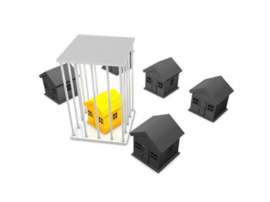
Eviction Process in Nebraska

Popular In Foreclosure
Deed In Lieu Of Foreclosure Stop Foreclosure Pre Foreclosure Protecting Tenants At Foreclosure Act Of 2009 Deed In Lieu Of Foreclosure Maryland Avoid Foreclosure Foreclosure Help Eviction Process In Missouri Eviction Process In Alabama Foreclosure Process Short Sale Deed In Lieu Of Foreclosure Ohio
If you are being evicted in the state of Nebraska, you may not know how to proceed. Learning about the eviction process in Nebraska can help you understand your rights and options under the law. After reading this guide, you will understand the steps involved in the eviction process in Nebraska and how long each step will take.
Getting Notice
If your landlord wants to evict you, he or she must give you proper legal notice a certain number of days before filing an eviction suit. This notice can give you time to find a new place to live, pay back rent, or cure a breach of the lease agreement.
For evictions due to a failure to pay rent, your landlord can issue you just three days' notice. If you do not pay your rent in that three-day time period, your landlord can take you to court and no longer has to accept any payment you offer.
For evictions due to a breach in the lease agreement, you will be served with a 14 day notice. If you do not fix the problem in 14 days, your lease automatically ends 30 days after you receive the notice and your landlord may continue the eviction process in Nebraska.
Court Filings and Hearings
If you do not respond to the notice you have been given by your landlord, the landlord can file a complaint with the district courthouse and begin an eviction suit. You will be served with a copy of the landlord's complaint (which details why you are being evicted) and a court summons (which tells you when and where your hearing will be).
If you wish to contest the eviction in court, the eviction process in Nebraska requires that you file an answer to the complaint within five days. If you do not contest the complaint within five days, you can be evicted. If you do contest it, you will be given a hearing.
When you have been discriminated or retaliated against by a landlord, or if your landlord has breached tenets of your lease agreement, you may win in court. If you win at the eviction hearing, the eviction process in Nebraska will stop immediately and you may be entitled to damages.
Writ of Restitution
If you lose in court, or if you do not contest the complaint, a writ of restitution will be ordered. This writ allows the sheriff to remove you by force if you do not vacate the property. You will be served with this writ and it will be posted on your property.
If you are removed from the premises forcibly, you can be charged with trespassing if you return. You will be given only a short time to remove your personal belongings from the premises. Your landlord cannot, in any circumstances, forcibly evict you personally. Eviction can only be done through the legal eviction process in Nebraska, and your landlord may not shut off your utilities or change your locks to prevent you from staying.



















